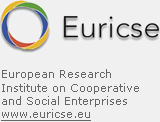University of Sheffield, 16-17 July 2015
The term ‘social network’ has become a prominent part of modern day discourse, and in recent years there has been rapid growth in the field of social network studies. Yet a world in which individuals are connected to one another in multifarious ways—spanning time, place, institutional affiliation, and other social boundaries—is not just a modern phenomenon. In the early modern period, neighbourhoods, villages, cities and continents were criss-crossed with relationships and ties of obligation, through which passed friendship, as well as animosity; money, ideas, information, material goods, and more. The concepts and methodologies of social network analysis, together with new digital technologies, provide the tools to uncover the nature of these communities in the past.
At stake is the very nature of society: how did people connect to one another, to what ends, and with what results? These are questions with relevance to disciplines across the humanities and social sciences. As such, this conference brings together historically minded scholars with an interest in social networks from a range of perspectives and disciplinary backgrounds.
Proposals for 20-minute papers or panels of three speakers are welcome from a wide chronological and geographical reach, exploring social network concepts, methodologies and findings. For example, papers might consider:
- Methodologies: sources, challenges, and approaches; digital technologies and techniques for the collection, storage, analysis and presentation of data
- ‘Ego-centric’ or ‘whole’ networks
- Familial and kinship networks
- Merchants or trading communities
- Religious, intellectual, literary, political or institutional communities
- The cultural values underpinning social networks: for example honesty, trust, or desire for profit
- How social networks change over time
- The geographical reach of networks: local, regional, national or international; urban or rural
Confirmed speakers:
Edward Muir, Clarence L. Ver Steeg Professor in the Arts and Sciences (Northwestern)
Emily Erikson, Assistant Professor of Sociology (Yale)
Mark Philp, Professor of History (Warwick)
Deadline for submission of proposals: 31 January 2015
For individual paper proposals, please submit a title and 200-word abstract, along with contact details. For panel proposals, please include a title and 200-word abstract for each paper and contact details for one speaker on the panel. Contact: kate.davison@sheffield.ac.uk
Details about postgraduate bursaries will be publicised in due course.
Sponsored by the Wolfson Foundation and Sheffield Centre for Early Modern Studies.








